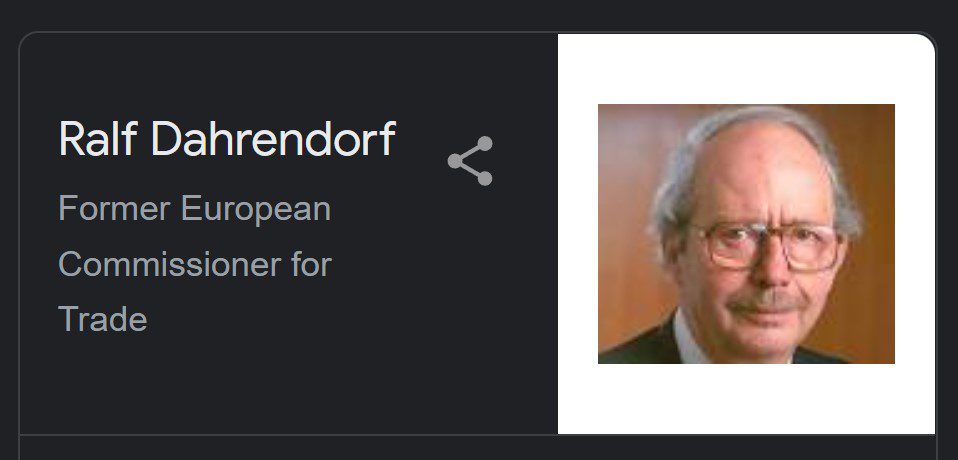Another quite popular conflict theory is Dahrendorf. Ralf Dahrendorf is a German intellectual who became famous through his work ” Class and Class Conflict in Industrial Society ” in 1959.
For Dahrendorf, the functionalist explanations of integration, value and consensus, and stability needed to be revised. He rejected these functionalist assumptions and sought to base his theory on a modern Marxist perspective. For him, social conflicts based on the opposition of interests and the consequences of disputes can be widespread and, at the same time, can give birth to social change. (Johnson: 1986: 183).
Although Dahrendorf has the same thoughts in viewing class conflict, Dahrendorf does not agree with the proposition offered by Marx. Dahrendorf considers Marx’s view irrelevant to post-industrial society (modern industry).
That is why Marx’s theories and concepts are recommended to be modified so that they can be adapted to analyze modern industrial society. Dahrendorf views that Marx only refers to capitalist society. Since Marx wrote his thoughts, there have been significant changes in the social structure. (Dahrendorf 1988).
That is why, Dahrendorf offers a concept and theory that pays more attention to explaining capitalist and post-capitalist society. Dahrendorf then built his new theory through this framework.
Dahrendorf had quite a few conflicts with Marx. He even rejected Marx’s concept of a classless society. Dahrendorf considers that the analysis of a classless society is highly speculative, and there is no empirical evidence that it can be realized.
Furthermore, Dahrendorf views several of Marx’s theses as not supported by empirical facts. In reality, class division cannot be carried out solely based on ownership of the means of production.
In conflict theory, Ralf Dahrendolf assumes that society is loyal when subject to change and conflict processes. Conflicts and various elements of culture that exist in the social system are considered to contribute to disintegration and change.
For him, the order that can be created in society is nothing but coercion on its members, carried out by those with power. This means that power in this social system plays a role in efforts to maintain order in society.
Dahrendorf also put forward the idea of a dialectical conflict theory. This theory states that society is a subject with two faces, namely conflict, and consensus. From this, Dahrendorf proposed the division of sociological theory into two parts, namely conflict theory and consensus theory.
In conflict theory, we can examine conflicts of interest and the use of violence in society. In consensus theory, we can examine the value of integration in society.
Dahrendorf assumes that society cannot exist without consensus and conflict because the unification of society occurs because of enforced non-freedom. This also reflects that in certain societal positions, there is authority over other positions that delegate power.
That’s it; Conflict Theory, according to Dahrendorf, I hope it is useful.

